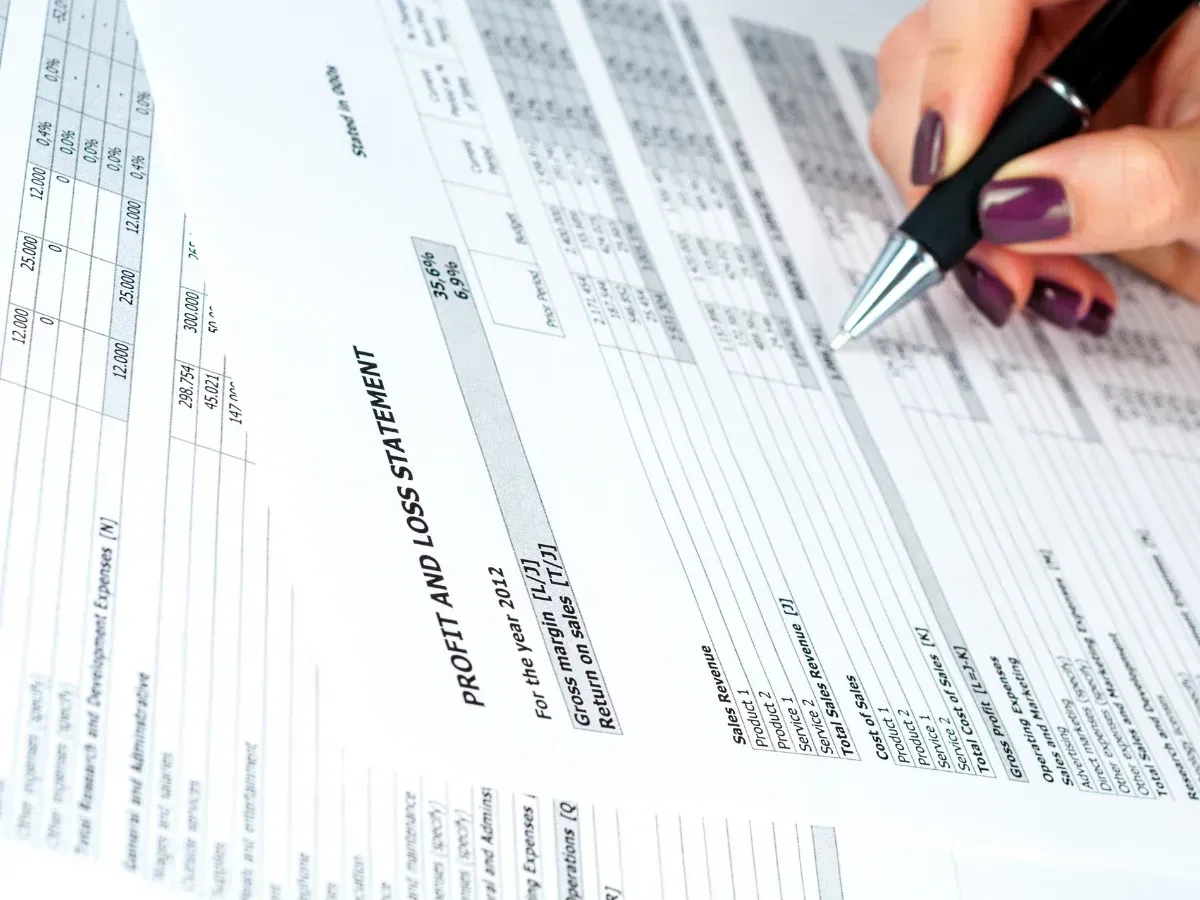P&L in Insurance: Understanding Financial Statements for Agencies

For independent insurance agents, keeping track of your finances is key to growing your business. One way to do this is by reviewing your P&L in insurance. But how do you understand all the numbers? By understanding this financial statement, you can assess where your money is coming from and where it’s going. Whether you run your agency or work with others, knowing how to read these statements is important for making smart financial choices.
What Is a Profit and Loss Statement?
A profit and loss statement (P&L) provides a snapshot of how much money your agency made and spent over a specific period. It helps you understand if your business is generating a profit or loss over a specific period. You can complete a P&L monthly, quarterly, or yearly, depending on how often you want to track your financial performance.
A statement of profit and loss serves a different purpose than a balance sheet. While a P&L tracks income and expenses over time, a balance sheet shows assets, liabilities, and equity at a specific moment. It also accounts for depreciation, which reflects the gradual reduction in the value of long-term assets like office equipment or company vehicles.
Reviewing this statement shows if income exceeds expenses and helps calculate gross profit for better decision-making. It’s an important way to track your agency’s overall performance and identify areas for improvement. This information also plays a key role in your agency's valuation, giving potential investors insight into its financial performance and growth potential.

The Key Components When Analyzing a Profit and Loss Financial Statement
Understanding these categories is essential for interpreting an insurance company's profit and loss statement.
1. Revenue: The Money Coming In
Revenue refers to the total income generated by your agency. This includes:
- Commissions: The primary source of income for most insurance agencies. Commissions are earned from the sale of insurance policies to policyholders, including new business and renewals.
- Other Income: Any other money your agency earns, such as fees for services or bonuses from carriers. This additional revenue is recorded on your income statement alongside your agency’s main earnings and expenses.
2. Cost of Goods Sold: The Direct Costs
This category includes costs directly related to earning your revenue, such as:
- Commissions Paid to Agents: If you pay commissions to other agents, these costs fall into this category.
3. Operating Expenses: The Ongoing Costs
Operating expenses cover the ongoing costs of running your agency, including:
- Salaries and Wages: For employees, agents, and other team members.
- Office Expenses: Rent, utilities, and office supplies.
- Insurance and Licensing Fees: Costs associated with maintaining the licenses and insurance policies your agency needs.
- Marketing Costs: Direct advertising or promotional costs aimed at bringing in business. For example, if your agency runs a digital marketing campaign targeting commercial insurance customers, the cost of those ads would be included here.
4. Net Income: The Bottom Line
Net income is the ultimate indicator of your agency’s profitability. It’s calculated by subtracting all expenses (COGS and operating expenses) from your revenue. A positive net income means your agency is making money; a negative net income means your agency is operating at a loss.
Why Understanding the Accounting for an Insurance Business Matters
For independent agents, the P&L in insurance can seem complex, but it’s crucial to know how to interpret them. Your agency is likely managing multiple accounts, policies, and commissions from different insurers, so understanding how these accounts come together on your P&L statement is essential. This knowledge allows you to:
- Track Revenue: See exactly how much income your agency is generating from various insurers and adjust your strategy accordingly.
- Manage Expenses: By tracking your costs, you can spot inefficiencies and reduce unnecessary spending.
- Plan for Taxes: Understanding your net income will help you prepare for tax season and ensure you're setting aside enough for your tax obligations.
Common Challenges with Insurance Agency Accounting
Many independent agents face challenges when it comes to accounting for their business. Here are a few common pitfalls:
- Underestimating Expenses: It's easy to overlook small, recurring expenses that add up over time.
- Misclassifying Revenue: Accurately categorizing revenue sources is key to understanding your agency's financial health.
- Failing to Track Commission Payments: Keeping track of commissions owed to agents can become complicated, especially when working with multiple carriers.
If you’re not familiar with accounting for the insurance business, consider working with a professional accountant to ensure you’re capturing all relevant financial data.

The Benefits of Hiring an Insurance Accountant
Managing your agency’s finances on your own can quickly become overwhelming, especially when you’re juggling policies, commissions, and day-to-day operations. While doing it yourself or hiring in-house may seem cheaper, an insurance accountant can save money long-term. It can also streamline your financial processes by ensuring compliance with GAAP (Generally Accepted Accounting Principles) and other accounting standards.
This type of accountant has a deep understanding of the unique challenges that come with insurance agency accounting. They can help you avoid costly mistakes like misclassifying revenue or missing key tax deductions, which are easy to overlook if you don’t know the specifics of the insurance industry.
Instead of spending your valuable time sorting through financial details, an accountant will handle everything from tracking commissions to managing operating expense statements. This allows you to focus on growing your agency.
Best Practices for Using Profit and Loss Statements in Your Insurance Agency
To make the most of your P&L for an insurance agency, follow these best practices:
- Review Regularly: Don’t wait until the end of the year to look at your P&L. Regular reviews help you spot issues early and make timely adjustments.
- Analyze Trends: Look for trends in revenue and expenses over time. Are you seeing a steady increase in sales? Are expenses rising faster than revenue? Identifying trends early will help you make proactive decisions.
- Compare with Industry Benchmarks: Understanding industry averages for insurance agencies can help you evaluate your performance. Are you spending more on marketing than the average agency in your area? Are your net profit margins in line with competitors?
Staying on top of your insurance company's profit and loss statement ensures your financial security, supports your agency's solvency, and positions it for sustainable growth.

Optimizing Financial Performance Through Accounting for Insurance Business
Understanding how to interpret your P&L insurance statement is essential for any independent agent. With the right knowledge, you can make better financial decisions, reduce costs, and increase your agency’s profitability.
If you’re struggling to manage your accounting, consider exploring tailored insurance agency accounting and bookkeeping services with a specialized accountant. They can help you optimize your financial processes, manage payroll, review the cash flow statement, and keep your agency on track for long-term success.

Insurance Accountants





